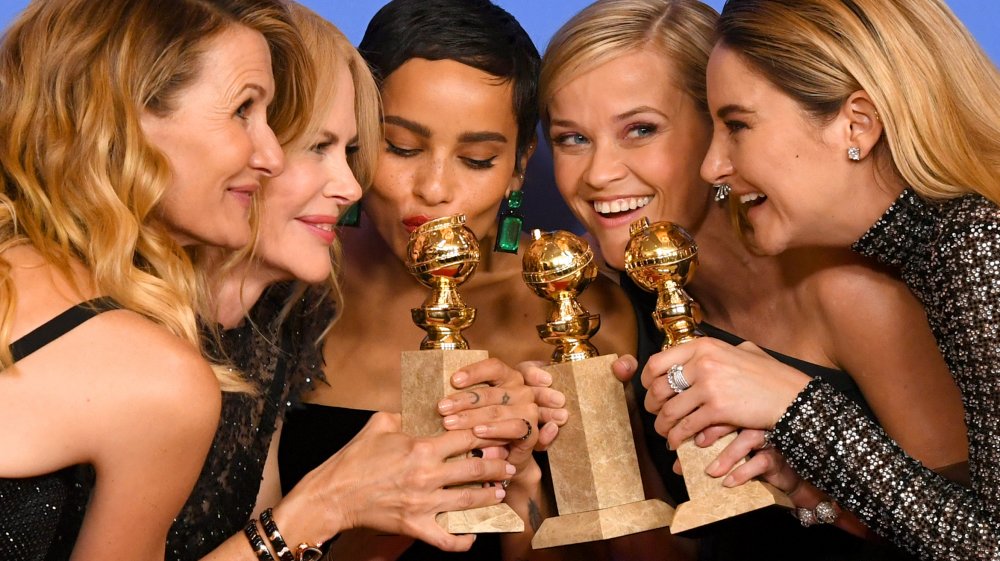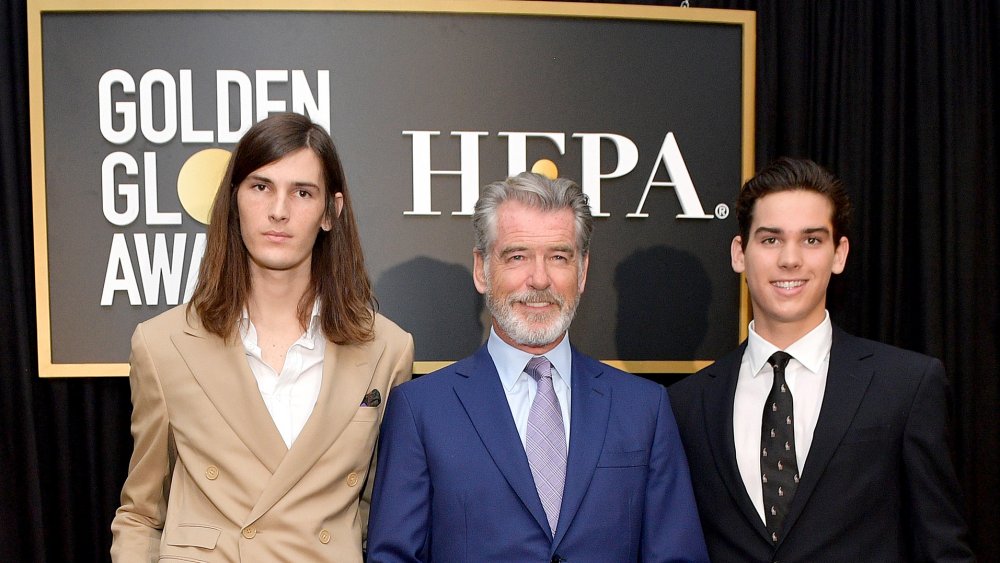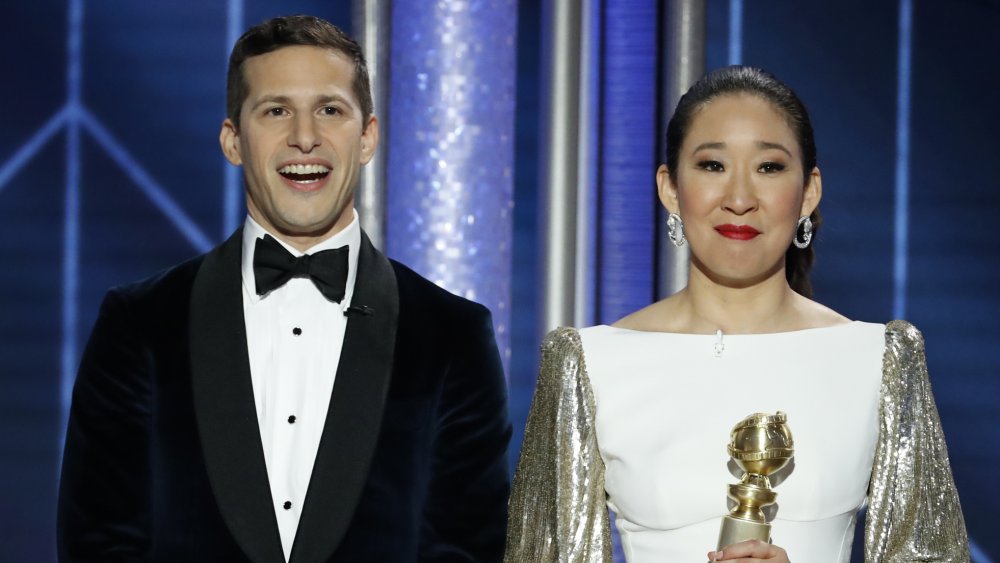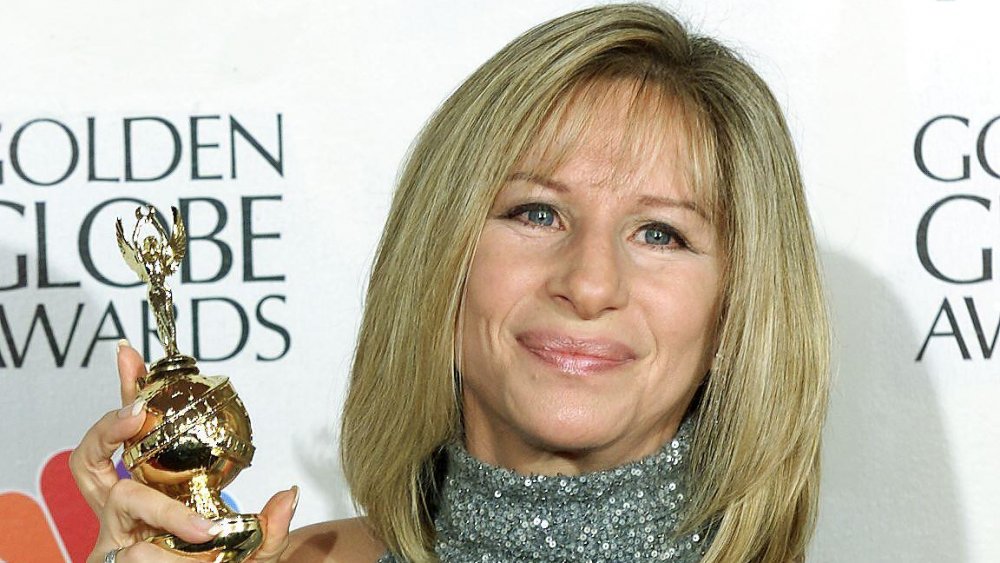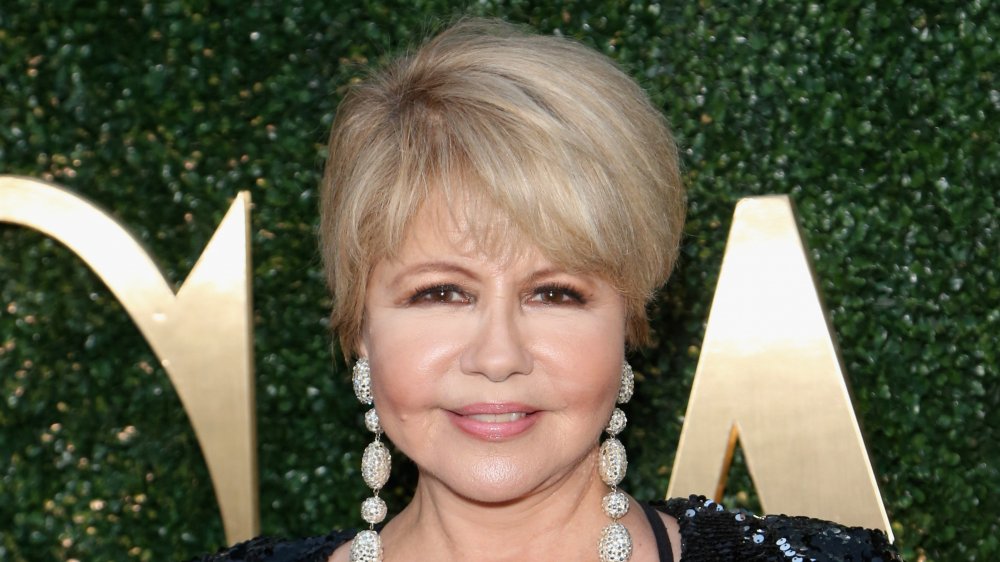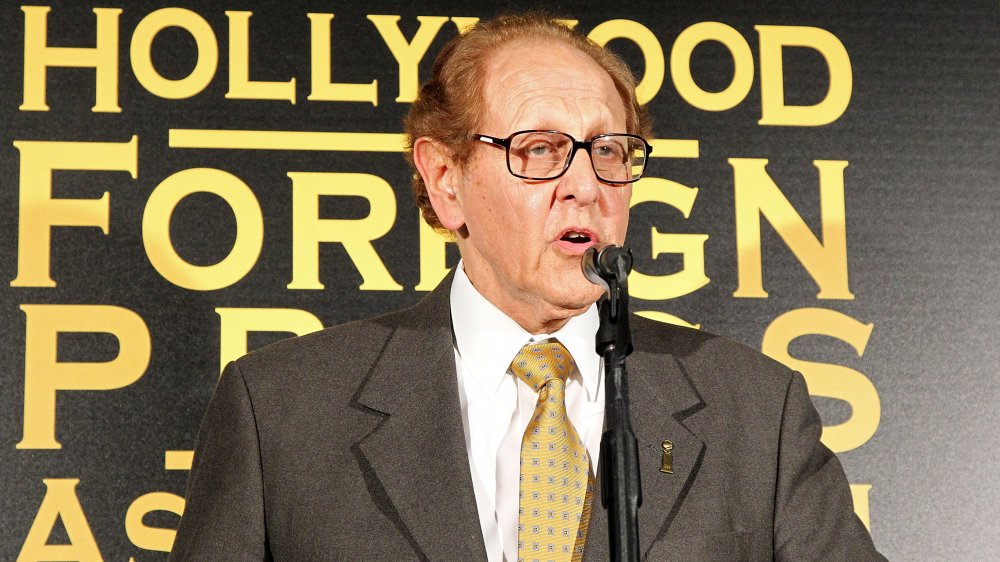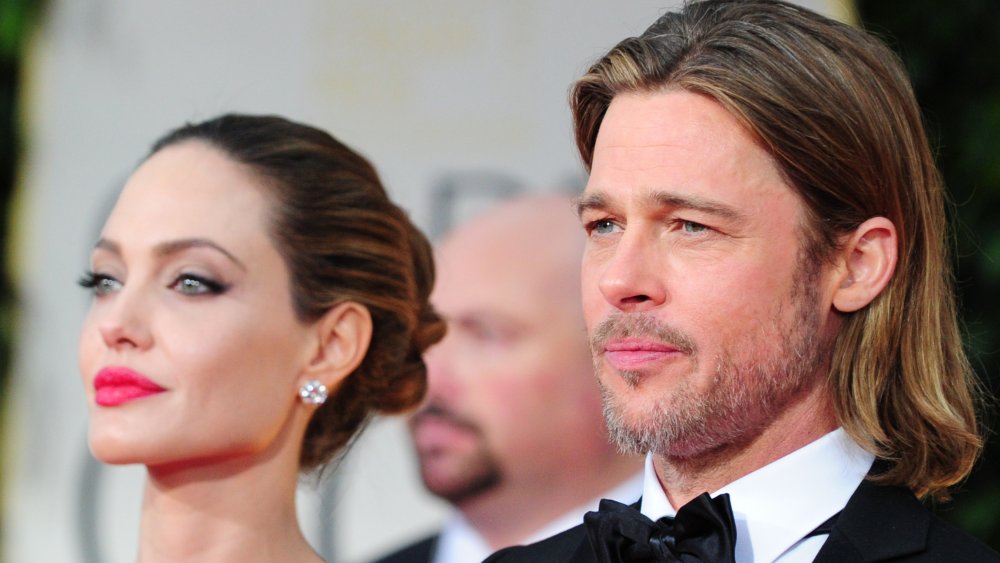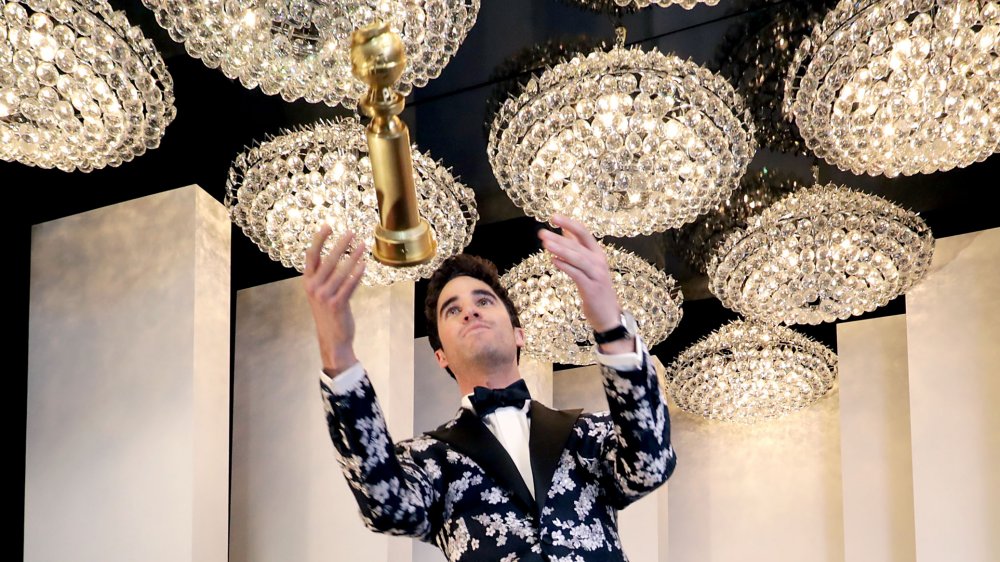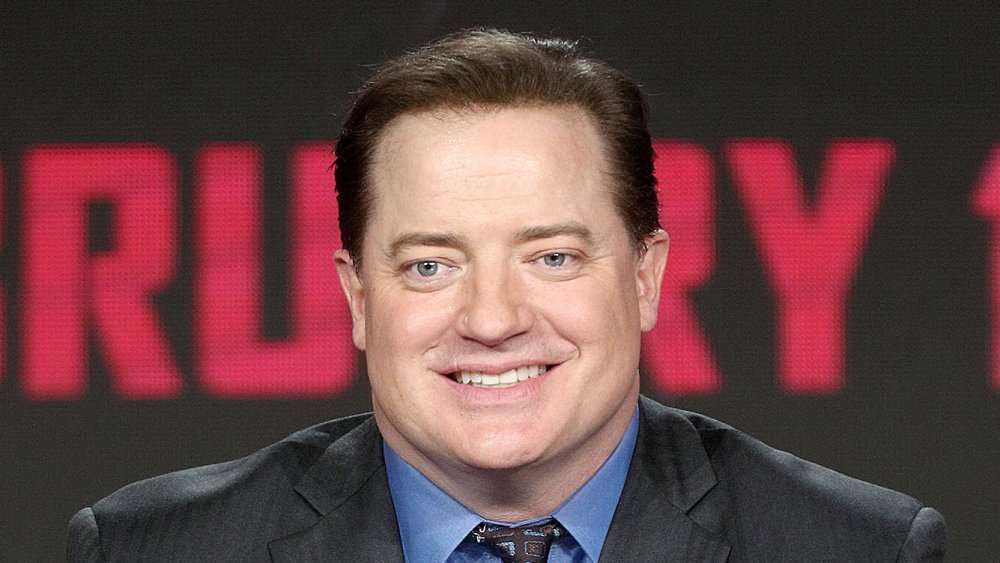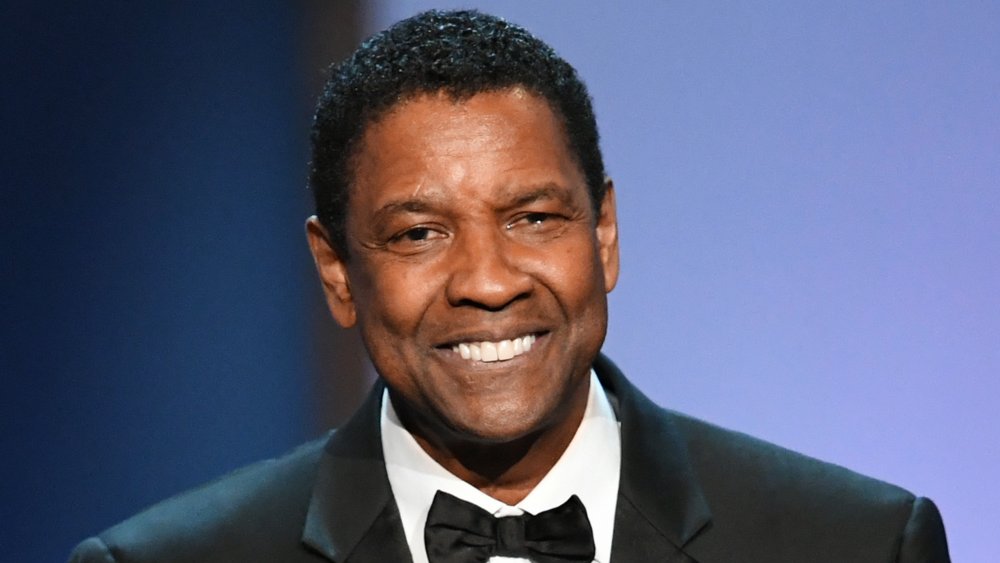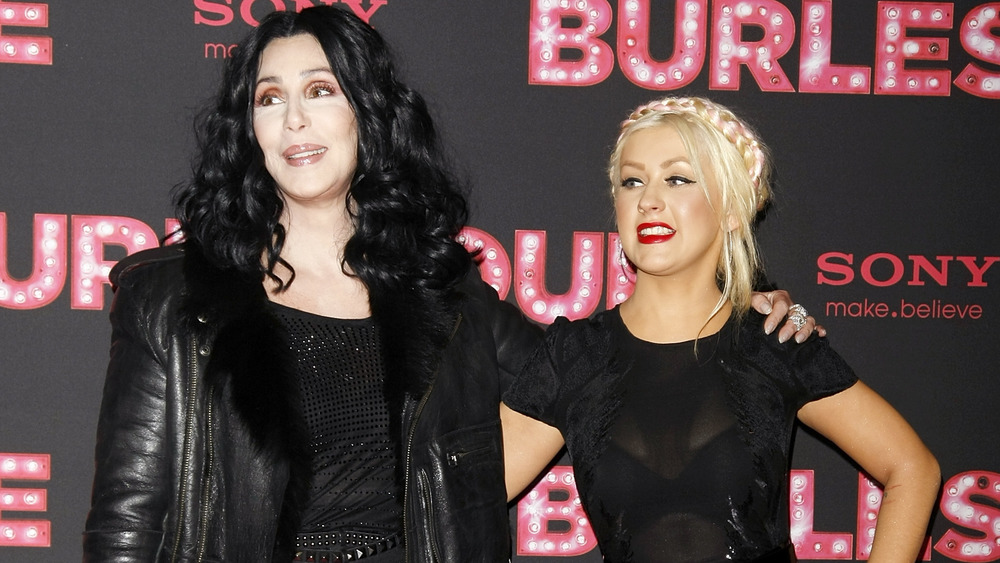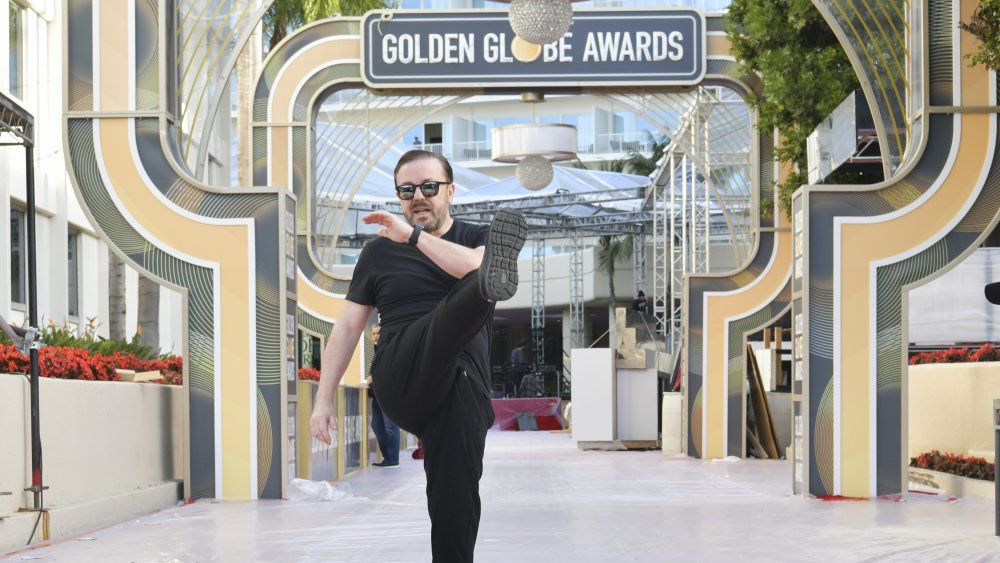The Shady Truth About The Golden Globes
Ah, the Golden Globe Awards, watched by the masses for a seemingly endless variety of reasons. To some, they're viewed as a prestigious award, with fans tuning in year after year to watch their fave celebs come up on stage and accept their dazzling prize. Others see them as a fun precursor to the Oscars, while the final group of viewers merely "hate-watch" the ceremony, presumably tuning in just to see what goes wrong.
Sure enough, the Golden Globes have been rather unexpected in the past and deliciously filled with scandal. From an over-indulgent Elizabeth Taylor slurring her words while announcing the night's biggest award, to Renee Zellweger's ill-timed bathroom break right as she won an award, you truly never know what you'll get when you watch the ceremony.
However, the question is: do any of us really know who the people behind the Golden Globes are? Sure, the event airs on NBC, and we've all heard of the Hollywood Foreign Press Association (HFPA) by now. But, what exactly is that? While the HFPA has worked hard to strengthen its reputation within Tinseltown by donating millions to academic, humanitarian, and entertainment non-profit organizations, It turns out, with a little bit of research, some of the group's activities are a little bit murky. Here is the shady truth about the Golden Globes.
Who exactly votes for the Golden Globes?
To the public, it seems like the Golden Globes are surrounded in a shroud of mystery. The biggest question on everyone's lips, however, is who exactly votes for the coveted awards? While the Academy Award voters are made up of film industry experts, the Golden Globes are not.
According to Variety, "The Academy of Motion Picture Arts and Sciences has about 8,700 voting members, all of whom work in moviemaking: actors, writers, directors, production designers, editors, etc. The HFPA consists of international journalists." Hmm, international journalists still sound pretty reputable, right? Well, this is where it all gets blurry.
As it turns out, the Hollywood Foreign Press Association consists solely of Southern California-based journalists "who cover Hollywood for news outlets in 55 countries, including nations in Africa, Asia, Australia, Europe, Latin America and the Middle East," per Variety. The outlet also reported that there were only "87 voting members" in 2019. There's no denying that it certainly seems like a niche group, raising questions about their validity. As New York Times correspondent Sharon Waxman once said regarding the HFPA's murky credibility (via Variety), "People know, and they don't care."
It doesn't seem that hard to get into the HFPA
While the name of the HFPA denotes esteem, a look at the qualifications for membership reveals a surprising truth. According to Variety, "Among the requirements [to become a member of the HFPA] are at least four articles published in international publications each year." That seems low, right? As a former HFPA president, Mirjana Van Blaricom bluntly told Washington Post (via Vulture), many of the group's members "write four or even five articles [a year]. I don't think that makes them journalists."
In a hilarious story from the New York Post, during the Golden Globes initial years in the 1940s, the HFPA members were even less credible. As the outlet notes, during one of the award shows, "one of the 'journalists' who was a member of the HFPA was onstage handing out an award when some of the few stars in attendance thought they recognized him." According to Maureen Dragone, a former HFPA member, it turned out that the "journalist" in question worked at a laundromat. "I think he'd done one [article] for some throwaway paper," Dragone dished, shockingly adding, "and that was enough to make him a member."
Although more recent members likely aren't laundromat workers, some of their full-time professions are certainly baffling. As Vulture dug up in 2015, the HFPA at the time had members who were photographers, a former Miss Universe, and "a former bodybuilder turned B-movie action star." Go figure.
Is institutional discrimination a problem within the HFPA?
Many think pieces have cropped up online regarding alleged sexist and racial snubs at awards shows — the Golden Globes included. Esquire weighed into the fray in 2019, noting that the Golden Globe nominations for 2020 were "overwhelmingly white," even though critically acclaimed black actors all still put out movies.
What's even more interesting are some of the wins. According to The New York Times, when Sam Rockwell won an award for Best Supporting Actor for his work in Three Billboards Outside Ebbing, Missouri, viewers were divided. As the outlet pointed out, Rockwell's role was that of "a police officer who, among other sins, is deeply racist." Twitter was abuzz after the win, such as one user poignantly writing, "Sam Rockwell just won an award playing a policeman who tortured a black person. So yeah, time's kinda up. But also kinda not."
As for the alleged sexism littered throughout the Golden Globes and in light of the #MeToo movement, shouldn't there be more representation amongst female directors? The New York Times journalist, Nicole Sperling, shed some light on the matter during an interview with the outlet, noting that the last Golden Globes win for a female director happened in 1984 to Barbra Streisand. "People are disappointed, but I don't know if anyone is that shocked," Sperling said. In this day and age, it begs the question: has Hollywood really changed?
The Famous bribery incident of 1981
There is phoniness in spades when it comes to award shows, but no other event endures rumors about bribery and corruption like the Golden Globes. Probably the most talked-about scandal was occured in 1981, when actress Pia Zadora (above) won a Golden Globe for the since-abandoned category of "best new star" for her work in Butterfly. Why was that a problem? Well, the flick was totally panned by critics. As the Los Angeles Daily News noted years later, Zadora's win was "widely believed to have been essentially bought by her husband through an expensive and extensive publicity campaign."
As People reported in February 1982, shortly after Zadora's questionable win, what's curious is that Butterfly wasn't even out in U.S. theaters by the time the Globes aired. This meant that "almost nobody in Hollywood had seen Zadora's portrayal of a nymphet who tries to seduce her backwoods father." As for those who did eventually see the flick? "Critics used phrases like 'spectacularly inept' to describe Pia's performance." Ouch.
Decades after her win, it appears Zadora is still trying to clear her name of any wrongdoing. In an interview with The Hollywood Reporter in 2015, the actress firmly denied her ex-husband, Israeli billionaire Meshulam Riklis' involvement. "I know that Rik did not buy it," Zadora declared. "Looking back, I realize what the controversy was about. I get it. I understand. Whether it was fair or not, I understand."
The HFPA doesn't like gossip coming from inside the ranks
While there seems to be no shortage of alleged shadiness when it comes to the behind-the-scenes workings of the Golden Globes, what's perhaps worse is the HFPA's alleged efforts at hiding that alleged shadiness from the public.
According to the Los Angeles Daily News, Philip Berk (above), a former HFPA president created much controversy with his 2014 memoir that "included his recollection that in 1991 actress Nicole Kidman got a Globe nomination for Billy Bathgate and her co-star Dustin Hoffman did not — because she did the HFPA meet-and-greet rounds and Hoffman skipped them." As Showbizz411's review of the book stated, it showcased "all the petty bickering and backstabbing, the focus on money, and the lack of interest in anything other than celebrity and power — certainly not movies — that make the Golden Globes such a joke." Uh-oh. So, what happened to Berk? As the Los Angeles Daily News dished, he was exiled from the organization — well, for six months, at least.
As much as Berk's brazen memoir may seem like a shock, in reality, what he wrote didn't really come as much of a surprise. As Ricky Gervais put it while hosting the 2010 Golden Globe Awards, "One thing that can't be bought is a Golden Globe ... officially. But if you were to buy one, the man to see would be Philip Berk."
Are the Golden Globes nominations a popularity contest?
Another question surrounding the credibility of the Golden Globes sees people asking whether or not the ceremony itself is simply a money-pulling popularity contest. As LiveAbout.com explains, there have been talks that the Hollywood Foreign Press Association gives "Golden Globe nominations and awards to the biggest possible names in order to get them to agree to come to the ceremony, which allows the HFPA to advertise those stars for the television broadcast." The outlet then adds that "more people will obviously tune in to see big-name stars than lesser-known critical favorites." Hmm.
The goss on the matter is no secret, either, as time and time again, the public has questioned whether the HFPA simply favors Hollywood legends. As Indiewire writes, throughout the years, the exclusive group has been "accused of valuing celebrity over artistic expression," noting that even significant Tinseltown figures have spoken about the issue to the public.
So, who in Hollywood was brazen enough to speak out? According to The Wrap, director and producer Peter Tolan called the HFPA "a bunch of wh**es," adding, "F**k the Golden Globes." Robert de Niro was a bit less harsh, like the time he accepted the Cecil B. DeMille Award during the Golden Globes in 2011. As the legendary actor quipped, "We are all in this together — the filmmakers who make the movies and the Hollywood Foreign Press Association members who in turn, pose for pictures with the movie stars."
The Golden Globes was so shady NBC pulled it off the air
The Golden Globes have had their fair share of controversy — in fact, they were even pulled off the air once. According to The Wrap, "the Federal Communications Commission investigated the Globes in 1968 and charged that they 'misled the public as to how the winners were determined.'" The result? NBC stopped airing the award show until 1974.
So, what did the investigation exactly find? As per the Federal Communications Commission Reports, NBC "did not fully meet its obligation to prevent improper practices and the broadcast of misleading programming." The report then reveals that while the public was under the impression that the "awards were secret until announced" it turned out that even NBC personnel was aware of what would happen before the actual announcements were made on the broadcast. "Bargaining took place between the HFPA and certain stars and film companies wherein awards were offered on condition that outstanding stars appear in person, in order to make the program more attractive," the investigation alleged.
In light of the findings, the HFPA must have changed something to come back to NBC, right? As it turned out, it was their public image. Per The Wrap, "They made the process more transparent ... and found that it was profitable to paint their show more as a big party than as an awards show. ... where the stars drink at their tables all night long and the stakes aren't really too high."
Have celebs been blacklisted from the Golden Globes?
As we learned, the HFPA definitely isn't shy about exiling certain members of their organization if they speak out against them. Well, as it turns out, they may be bold enough to blacklist certain celebrities, too.
In a GQ profile, Brendan Fraser recounted an incident with former HFPA president Philip Berk, where he claimed that Berk groped him inappropriately. "His left hand reaches around, grabs my a** cheek, and one of his fingers touches me in the taint ... I felt like there was a ball in my throat. I thought I was going to cry." Berk, meanwhile, told the outlet that the story is "total fabrication." As The Mummy star went on to explain, his reps asked the HFPA for a written apology, which he received, yet he wondered as the years went on if the HFPA simply blacklisted him, too. "I don't know if this curried disfavor with the group, with the HFPA. But the silence was deafening."
After Fraser's story went public in 2018, Videodrome star James Woods spoke out, supporting his fellow actor. Taking to his Twitter, Woods wrote, "I, too, was blacklisted by that individual at #HFPA after nine Golden Globe nominations. During a press junket with HFPA, he asked if I would support Hillary Clinton if she ever ran for president. Never nominated again." Although both stories are only hearsay, we'll let you decide on this rumor.
Are HFPA members persuaded and bought by studios?
A big question that surrounds the Golden Globes is whether or not the HFPA is bribed by studios and actors into swaying their votes. Per the Independent, publicist Michael Russell filed a lawsuit in 2011, "alleging that he was improperly sacked after almost two decades for attempting to root out corrupt practices within the Hollywood Foreign Press Association." Russell claimed that "HFPA members routinely accept money, holidays, and gifts from film studios in exchange for nominating their movies for Golden Globes."
What's more, is that according to the New York Post, every December, studios organize parties and invite both HFPA members and Hollywood A-listers, noting that it's "a practice forbidden by the Academy Awards." Denzel Washington seemingly confirmed the alleged charade while accepting the Cecil B. DeMille Award during the 2017 Golden Globes. "Some of you may know Freddie Fields. He invited me to the first Hollywood Foreign Press luncheon. He said, 'They are gonna watch the movie. We are gonna feed them ... You gonna take pictures with everybody. You are gonna hold the magazines, take the pictures, and you're gonna win the award.'" As the audience laughed, Washington then revealed, "I won that year."
So, what does the HFPA say? Well, their answer was a bit murky. When asked about "lavish gifts from studios," the organization's then-president Meher Tatna told Vanity Fair in 2018, "We have a rule that no gifts in excess of $95 can be given to us."
Sony may have bought a major nomination for a dud of a movie
In December 2010, the annual Golden Globe nominations were announced, and Burlesque was on the list. The a racy, campy movie starring Cher that takes place in a sexy nightclub rated PG-13 for "partial nudity" and "suggestive dance routines" scored a nomination for Best Motion Picture — Comedy or Musical. That was a baffling move on the part of the Hollywood Foreign Press Association, because Burlesque, unlike category competitors like The Kids Are All Right and Alice in Wonderland, had not been a critical or commercial hit, earning a lowly 26 percent on Rotten Tomatoes at the time (per The Wrap) and ultimately a so-so $39 million at the American box office.
Something seemed fishy, and a day after the nomination was announced, Patrick Goldstein of the Los Angeles Times speculated on the real reason behind Burlesque's accolade. "HFPA members," Goldstein claimed, "took a Sony-sponsored trip to Las Vegas to see Cher in concert, then gave her film a stunning best picture nod." Asked for comment about the excursion (which also included a stay in a nice hotel) by The Wrap, HPFA reps had little to say. The outlet noted, however that HFPA members were said to have "paid for their transportation" to Las Vegas and that the Cher tickets were "valued at $82." Additionally, HFPA bylaws allow gifts from studios (like Burlesque's Sony) as long as they don't cost more than $100.
Not even Hollywood stars take the Golden Globes seriously
At the end of the day, even some of Hollywood's finest don't take the Golden Globes seriously. For example, Gary Oldman, who won a Golden Globe in 2018 for playing Winston Churchill in Darkest Hour, ironically declared in a 2014 interview with Playboy (via IndieWire), "[It is] a meaningless event. The Hollywood Foreign Press Association is kidding you that something's happening. They're fu**ing ridiculous. ... It's 90 nobodies having a wank." Meanwhile, The Marvelous Mrs. Maisel's Rachel Brosnahan hilariously keeps her Golden Globe trophies on top of her toilet. Classy.
As for thinking that the Golden Globes influence the Oscars, think again. As The Wrap notes, "saying that a Globes win for a movie helps bring about an Oscar win for that movie is the same as saying that February causes March. One happens after the other, but that doesn't mean the first one influences the second."
While all the stories about the Golden Globes are definitely food for thought, it's perhaps five-time host Ricky Gervais who ultimately knows best how to draw attention to the shady wrongdoings of the organization with a sense of humor. As he joked in 2016, "Remember that no one cares about that award as much as you do ... That award is, no offense, worthless. It's a bit of metal that some nice old confused journalists wanted to give you in person, so they could meet you and have a selfie with you, okay?"

